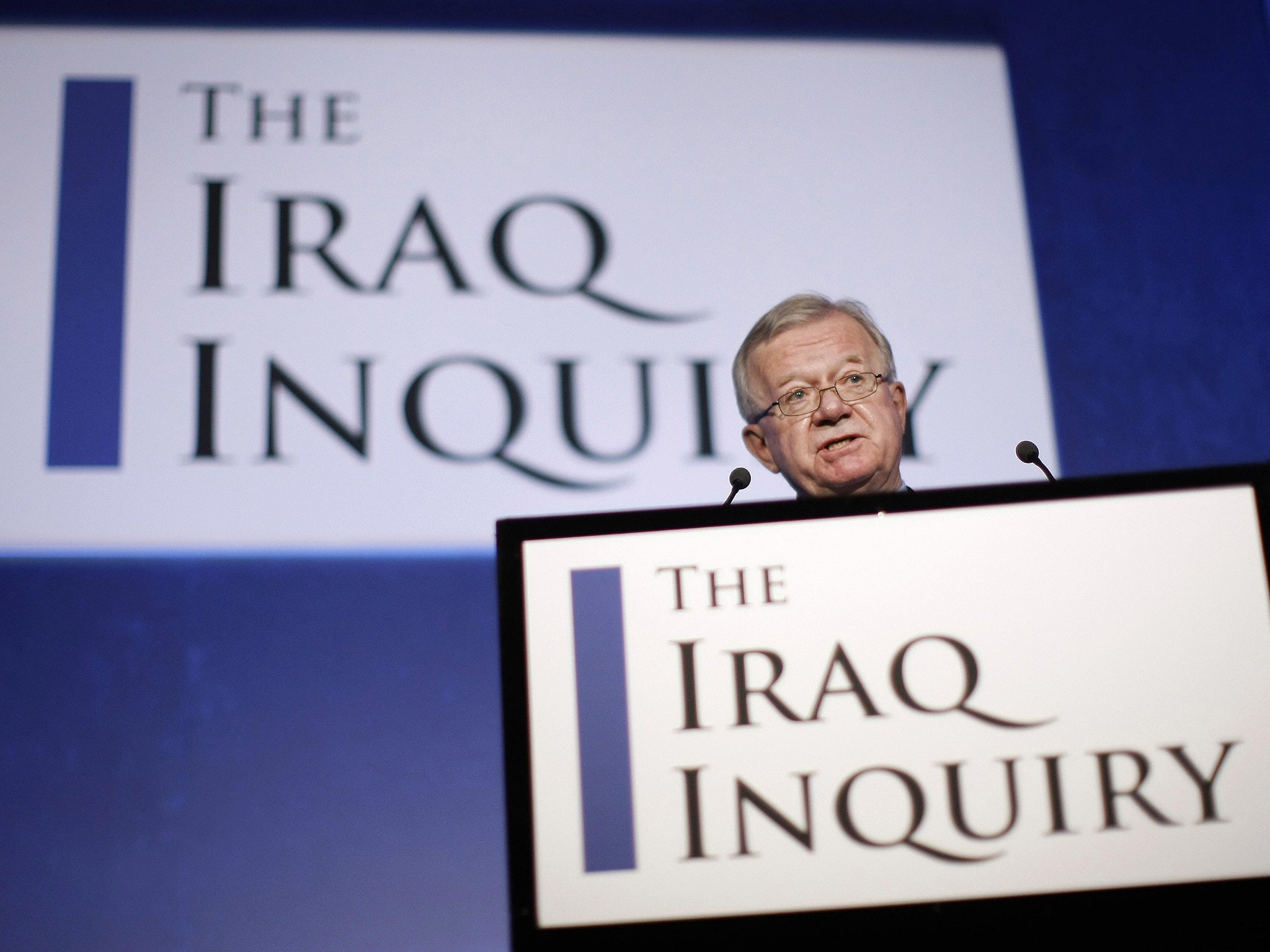Chilcot inquiry finally has a delivery date – but we already know its key finding
The two-million-word document – give or take the odd footnote – will be published in June or July next year

For most of the past seven years, since it was set up by the then Prime Minister Gordon Brown, there has been little idea of when the Iraq Inquiry would report. More recently the delays had gone on for so long that some were asking, not entirely sarcastically, if it would ever report. The proceedings have taken two or three times longer than the Iraq war itself, and one member of the panel, the distinguished historian Sir Martin Gilbert, has sadly passed away.
Now, the chair of the inquiry, Sir John Chilcot, has told us when the waiting will be over. The two-million-word document – give or take the odd footnote – will be published in June or July next year, more than a decade after the war formally ended. There have been many theories, conspiracy and otherwise, about the inordinate delay. “Maxwellisation”, the endless process of cross-checking of amended statements between witnesses, added a complexity to an already monumental task. For while it was right that one overarching inquiry should indeed look at all aspects of the planning and conduct of the war and its aftermath – it was after all the worst British foreign policy blunder in a century or more – that vast remit left the Chilcot team with an almost unmanageable volume of material to examine.
Reluctance by the American authorities to disclose sensitive information was a further factor, as was reticence in our own Cabinet Office. The Chilcot inquiry also had to contend with the existence of other lines of inquiry by select committees and tribunals, as well as taking due account of the Butler Review, the Hutton report and the theories (reliable or otherwise) of various participants, from Tony Blair to Condoleezza Rice.
So Sir John had his work cut out. It may well be that even this gargantuan effort will not answer all of the relevant questions.
The prospect, then, is that we may never understand why we went to war in the ruinous, illegal manner we did. That matters because of the loss of life among civilians and military personnel in the conflict, as well as the injuries they sustained. It is not too strong a conclusion to reach, still without the benefit of any official verdict, to say that the Syrian refugee crisis can be directly traced back to the disastrous decision to join the US in its invasion of Iraq. Indeed, in a curiously timed interview last weekend, Mr Blair admitted as much himself.
One of the many ironies of the Iraq war – perhaps, given events since, it would be termed the “first Iraq war” – is that the public’s disillusionment with intervention makes dealing with Isis and humanitarian disasters in Iraq and Syria more difficult than it need be. Still, the bigger truths about the Iraq war have been known since before it started. It was illegal under international law in that it had no explicit sanction from the UN; it was unnecessary because at that point in 2003 Saddam Hussein had been “caged” through sanctions and no-fly zones; there turned out to be no weapons of mass destruction; there was insufficient planning for the aftermath, which left the vacuum now filled by Isis and civil war. And that we don’t need Sir John to tell us.
Join our commenting forum
Join thought-provoking conversations, follow other Independent readers and see their replies
0Comments